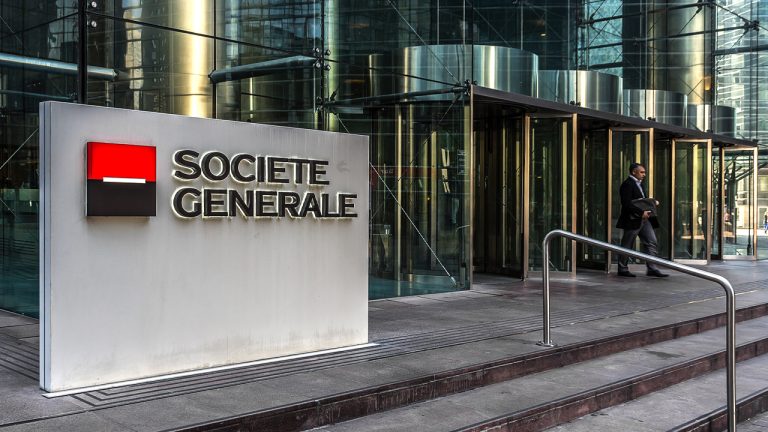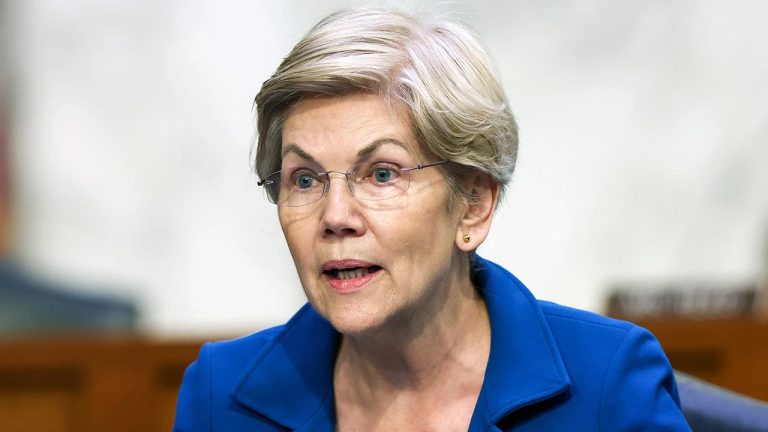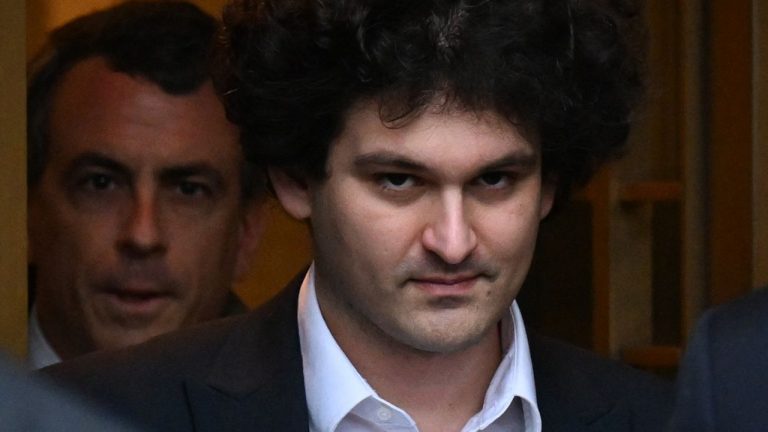 Craig Wright has been referred for criminal investigation in Britain for alleged perjury. Wright claimed to have authored the foundational 2008 Bitcoin white paper under the pseudonym “Satoshi Nakamoto.” He pursued litigation globally, including in the UK and the U.S., asserting his claim. The Crypto Open Patent Alliance, including Block, founded by Twitter’s Jack Dorsey, […]
Craig Wright has been referred for criminal investigation in Britain for alleged perjury. Wright claimed to have authored the foundational 2008 Bitcoin white paper under the pseudonym “Satoshi Nakamoto.” He pursued litigation globally, including in the UK and the U.S., asserting his claim. The Crypto Open Patent Alliance, including Block, founded by Twitter’s Jack Dorsey, […] In the wake of the recent legal action against ten associates of Terraform Labs, which included the co-founder Shin Hyun-seong, known to many as Daniel Shin, it appears that prosecutors from Seoul are convinced that Terraform Labs and co-founder Do Kwon are still in possession of a considerable sum of money, specifically 130 billion won […]
In the wake of the recent legal action against ten associates of Terraform Labs, which included the co-founder Shin Hyun-seong, known to many as Daniel Shin, it appears that prosecutors from Seoul are convinced that Terraform Labs and co-founder Do Kwon are still in possession of a considerable sum of money, specifically 130 billion won […] Court filings reveal that the FTX co-founder is seeking access to a $10 million insurance plan to cover his attorney fees. FTX debtors and unsecured creditors have opposed Sam Bankman-Fried’s request, arguing that every dollar spent on his defense is “one less dollar” available to cover the losses of the debtors. FTX Debtors and Unsecured […]
Court filings reveal that the FTX co-founder is seeking access to a $10 million insurance plan to cover his attorney fees. FTX debtors and unsecured creditors have opposed Sam Bankman-Fried’s request, arguing that every dollar spent on his defense is “one less dollar” available to cover the losses of the debtors. FTX Debtors and Unsecured […] On Tuesday, French officials conducted raids on five major banks located in and around Paris, including Societe Generale, BNP Paribas, HSBC, Natixis, and BNP’s Exane Bank, over alleged charges of money laundering and fiscal fraud. According to a spokesperson for France’s Financial Prosecutor’s Office (PNF), the preliminary investigation into four French banks and one international […]
On Tuesday, French officials conducted raids on five major banks located in and around Paris, including Societe Generale, BNP Paribas, HSBC, Natixis, and BNP’s Exane Bank, over alleged charges of money laundering and fiscal fraud. According to a spokesperson for France’s Financial Prosecutor’s Office (PNF), the preliminary investigation into four French banks and one international […] After Silvergate Bank announced its voluntary liquidation, U.S. senator Elizabeth Warren is attributing the financial institution’s downfall to “crypto risk.” According to Warren, she had previously warned about Silvergate. However, some critics are dismissing Warren’s opinion as “terribly misinformed” and claim that she is “tossing out egregious accusations.” Crypto Proponents Offer Different Perspectives on Silvergate […]
After Silvergate Bank announced its voluntary liquidation, U.S. senator Elizabeth Warren is attributing the financial institution’s downfall to “crypto risk.” According to Warren, she had previously warned about Silvergate. However, some critics are dismissing Warren’s opinion as “terribly misinformed” and claim that she is “tossing out egregious accusations.” Crypto Proponents Offer Different Perspectives on Silvergate […]
Tether has hit back at a Wall Street Journal report detailing alleged shady dealings by it and Bitfinex to open bank accounts.
The company behind stablecoin Tether (USDT) has rebuffed a report by The Wall Street Journal claiming it had ties to entities that faked documents and used shell companies to maintain access to the banking system.
On March 3, the WSJ reported on leaked documents and emails purportedly revealing that entities tied to Tether and its sister cryptocurrency exchange Bitfinex faked sales invoices and transactions and hid behind third parties in order to open bank accounts they otherwise may not have been able to open.
In a March 3 statement, Tether called the findings of the report “stale allegations from long ago” and “wholly inaccurate and misleading,” adding:
“Bitfinex and Tether have world-class compliance programs and adhere to applicable Anti-Money Laundering, Know Your Customer, and Counter-Terrorist Financing legal requirements.”
The firm went on to say that it was a “proud” partner with law enforcement and “routinely and voluntarily” assists authorities in the United States and abroad.
Tether and Bitfinex chief technology officer Paolo Ardoino tweeted on March 3 that the report had “misinformation and inaccuracies” and insinuated that the WSJ reporters were clowns.
I'm at the PlanB anniversary in #lugano
— Paolo Ardoino (@paoloardoino) March 3, 2023
So much energy and people excited to talk about #Bitcoin
While I was on on stage I heard some clown honks, pretty sure was WSJ.
As always ton of misinformation and inaccuracies. Poor guys, must be difficult be them but need better media.
Cointelegraph contacted Tether and Binfinex for comment on the report and their statement but did not receive a response by the time of publication.
The WSJ article outlines — through its reported review of leaked emails and documents — Tether and Bitfinex’s apparent dealings to stay connected to banks and other financial institutions that, if cut off from, would be “an existential threat” to their business, according to a lawsuit filed by the pair against Wells Fargo bank.
One of the leaked emails suggests the firm’s China-based intermediaries were attempting to “circumvent the banking system by providing fake sales invoices and contracts for each deposit and withdrawal.”
There were also accusations in the report that Tether and Bitfinex used various means to skirt controls that would have restricted them from financial institutions, and had links to a firm that allegedly laundered money for a United States-designated terrorist organization, among others.
Meanwhile, a person familiar with the matter told the WSJ that Tether has been under investigation by the Department of Justice in a probe headed by the U.S. Attorney’s Office for the Southern District of New York. The nature of the investigation could not be determined.
Related: Silvergate closes exchange network, releases $9.9M to BlockFi
Tether has faced multiple allegations of wrongdoing over the past few months and recently had to downplay a separate WSJ report in early February that claimed four men controlled approximately 86% of the firm since 2018.
It similarly had to combat what it called “FUD” (fear, uncertainty, and doubt) from a WSJ report last December concerning its secured loans and subsequently pledged to stop lending funds from its reserves.

The CTO stepped down from the DeFi-focused infrastructure firm on Feb. 20, but not without some allegations aimed at his former company and its CEO.
The CEO of Composable Finance has vigorously refuted allegations of legal improprieties at his decentralized finance (DeFi) infrastructure platform, which was being aired by the firm's former CTO Karel Kubat.
In a Feb. 20 Twitter post, Composable Finance's now-former CTO Karel Kubat announced he had stepped down from the firm. He also leveled a number of accusations aimed at his former company and its CEO.
In Kubat’s post, the CTO said that he is resigning because the firm has not provided financial statements to him or the community and because he has no overview of the company’s financial health.
He however said he suspects CEO Omar Zaki, who has been legally barred from raising money for companies, was involved in the raising of Series A funds for the company in violation of a cease-and-desist mandate from the U.S. Securities and Exchange Commission.
Kubat said he also suspects Zaki’s role in the alleged rug-pull project, Bribe, was “much greater than he publicly stated.”
Responding to Kubat’s resignation, Zaki took to Twitter Spaces for an AMA (Ask Me Anything) on Feb. 20, in which he vigorously denied all of the accusations. He claimed that all of the company’s actions to his knowledge were done in full accordance with the law.
1/ We’re sorry to announce that Composable Finance has parted ways with our former CTO.
— Composable Finance (@ComposableFin) February 20, 2023
While this naturally prompts questions and concerns, our team is committed to addressing these questions and alleviating any concerns.
In response to claims of a lack of financial transparency at the company, Zaki stated that the company is private and cannot publicly release financial information.
However, “we remain super confident that we have sufficient resources, personnel, and the tech to actually execute upon our strategies […] there is nothing here that causes me concern or should cause the public concern," he said.
Zaki also denied violating any orders from the SEC, stating that the Series A fundraiser was done completely offshore and was compliant with laws in the countries where it took place. Zaki stated that the company retained legal counsel to ensure that no laws were broken, as he explained:
“Those allegations are incorrect, the series A was designed as an offshore sale of utility tokens and we had outside council advising on the offering […] I had made very clear that all offerings of composable were conducted with sufficient legal council”
As for the claim that Composable was involved with the Bribe project, Zaki stated flatly “we had no part in the Bribe project.”
Related: Mutant Ape creator arrested for alleged “fraud”
Composable Finance is the developer of a cross-chain bridging and messaging protocol. In Feb. of 2022, it raised over $100 million through a parachain auction on Polka Dot. Ten days after the fundraise, noted blockchain sleuth ZachXBT successfully doxxed the company’s CEO, known as “0xbrainjar,” revealing that the CEO is Omar Zaki.
In an April 1, 2019 settlement, the SEC accused Zaki of “repeatedly [misleading] investors in the Fund about assets under management, fund performance, and fund management,” during his role as an executive for Warp Finance and Force DAO. As part of the settlement, Zaki was barred from raising money for investors in the U.S.
However, the SEC action was a civil cease-and-desist order, and Zaki is understood to have not been convicted of violating any criminal laws.
ZachXBT also accused Zaki of being involved with Bribe, an alleged rug-pull scam, in the past.
 Two civil lawsuits, stemming from the U.S. Securities and Exchange Commission (SEC) and the Commodity Futures Trading Commission (CFTC), against former FTX CEO Sam Bankman-Fried will be paused until his criminal proceedings are complete. US Attorney Requests Pause on SEC and CFTC Lawsuits to Prevent ‘Judicial Overlap’ According to the latest decision by a New […]
Two civil lawsuits, stemming from the U.S. Securities and Exchange Commission (SEC) and the Commodity Futures Trading Commission (CFTC), against former FTX CEO Sam Bankman-Fried will be paused until his criminal proceedings are complete. US Attorney Requests Pause on SEC and CFTC Lawsuits to Prevent ‘Judicial Overlap’ According to the latest decision by a New […] On Monday, the New York Department of Financial Services (NYDFS) published guidance on custodial structures to help protect customers’ money if a crypto firm goes bankrupt. New York’s top financial regulator stressed that businesses should not commingle customer funds and that customer funds should be segregated with separate accounting. FTX Collapse Prompts NYDFS to Issue […]
On Monday, the New York Department of Financial Services (NYDFS) published guidance on custodial structures to help protect customers’ money if a crypto firm goes bankrupt. New York’s top financial regulator stressed that businesses should not commingle customer funds and that customer funds should be segregated with separate accounting. FTX Collapse Prompts NYDFS to Issue […] The former CEO of FTX, Sam Bankman-Fried (SBF), has published a Substack newsletter on Jan. 12, 2023, and the first post is titled “FTX Pre-Mortem Overview.” In the post, SBF maintains that an “extreme, quick, targeted crash precipitated by the CEO of Binance made Alameda insolvent.” The blog post does not mention the allegations made […]
The former CEO of FTX, Sam Bankman-Fried (SBF), has published a Substack newsletter on Jan. 12, 2023, and the first post is titled “FTX Pre-Mortem Overview.” In the post, SBF maintains that an “extreme, quick, targeted crash precipitated by the CEO of Binance made Alameda insolvent.” The blog post does not mention the allegations made […]